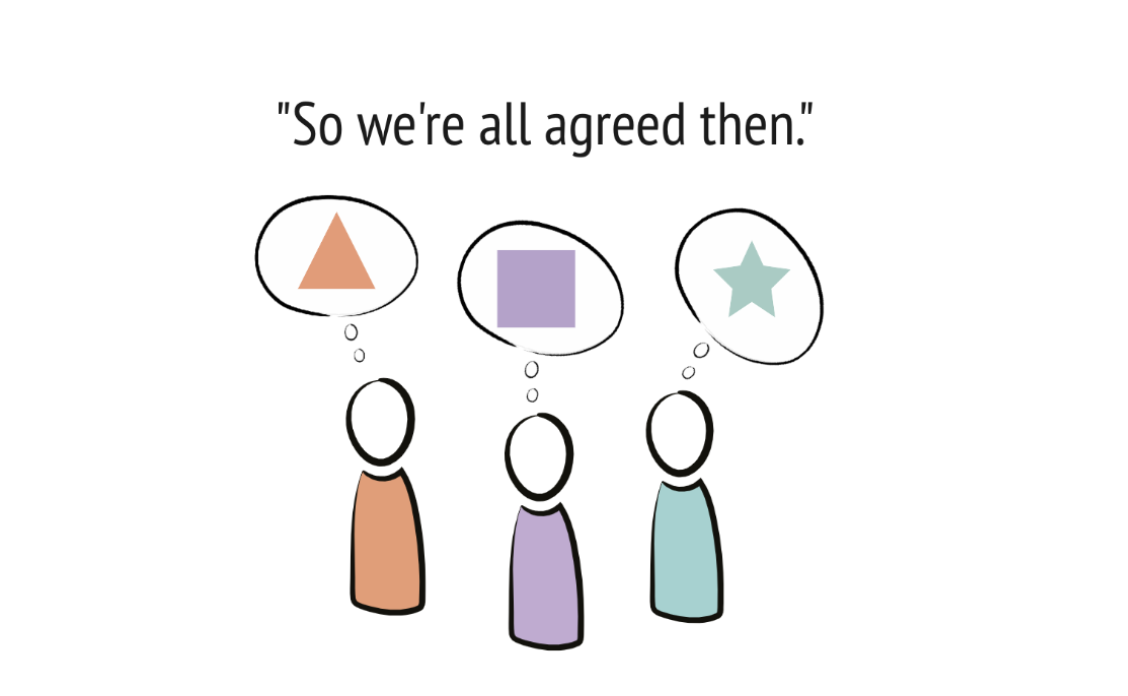Language has baggage

Through a few conversations, you quickly learn how important the use of language can be to people and organisations. People traversing from one company to the next carry cultural and organisational baggage, and language is one of them.
There have been many times I’ve worked with organisations that quickly shut down the use of certain words or ways of communicating the work we do. “We don’t say that here” or “That’s not going to go down well.”
These aren’t bad words. They’ve just been misused or misunderstood and left a sour taste in people’s mouths.
I’m using Rick Maurer’s Three Levels of Resistance and Change Model to explore the impact that language can have.
1. I don't understand it
Often this is about miscommunication. There are many ways of describing things that get lost in translation or are used flippantly without any true explanation of what the person using it means.
An example of this is a buzzword like ‘innovation’ or ‘disruption’. Ask five people what innovation means, and you will get five different answers and perhaps a few eye rolls. Even with the best intentions, using a simple word to describe something complex can create certain expectations and make people think they’re all on the same page when they are not.
Not understanding a word and its intention can also mean not being comfortable with ambiguity and what this means for a person. When I’ve worked with organisations to help them adopt new ways of working, ‘capability building’ can be misunderstood or interpreted as ‘you don’t think I have the skills to do my job’. While that is not the intention, not being cognisant of this can create resistance and leave people fearing what their future looks like at the company.
2. I don't like it
I worked with an organisation whose former CEO had some big ideas for changing the organisation and its culture. That CEO created a list of ‘non-negotiables’, which were cultural expectations for all employees. This list was printed on mugs and given to every employee (not joking!). Unsurprisingly, everyone cringed when anything came up around the words ‘negotiable or non-negotiable’.
Most of the time, past experiences and the use or misuse of words weighs them down with meaning. The association people have with words and how they share this can ripple through organisations. In my first year of work, a colleague ensured the word ‘employee’ was used instead of ‘staff’ in any communications because ‘it sounded better’. Not being precious about it, I took their word for it and adopted the change.
I’ve heard people say they prefer to use ‘opportunity' rather than ‘problem' because it embodies optimism and possibility. In an organisation rife with change, a positive spin can be necessary to keep people engaged.
3. I don't like/trust you
Credibility and trust play into the interpretation and acceptance of certain words. How often have you seen a product or service described as ‘world class’? Even with the best intentions, when rhetoric doesn’t match action, it fractures trust.
I’ve often heard this many times with words and examples like ‘omnichannel’ and ‘diversity and inclusion’. Some words create expectations for people, and not trusting the intention of the person or organisation sharing and using that language and fearing the impact it might have can create resistance in people.
Language connects us. It can also disconnect us. If we don’t consider what our words mean and how they are received by whoever is listening, we may create unintentional divides with those we’re trying to connect with.
To keep people focused on what you’re trying to communicate rather than how it’s communicated:
- Understand the audience you’re communicating with, how they might respond, and what you want them to take away.
- Avoid buzzwords. Or, if you’re going to use them, be clear about what you mean. For example, ‘When we say X, we mean X.’
- Use plain language and keep it simple. There is no value in using words that people may not understand or get fixated on.
